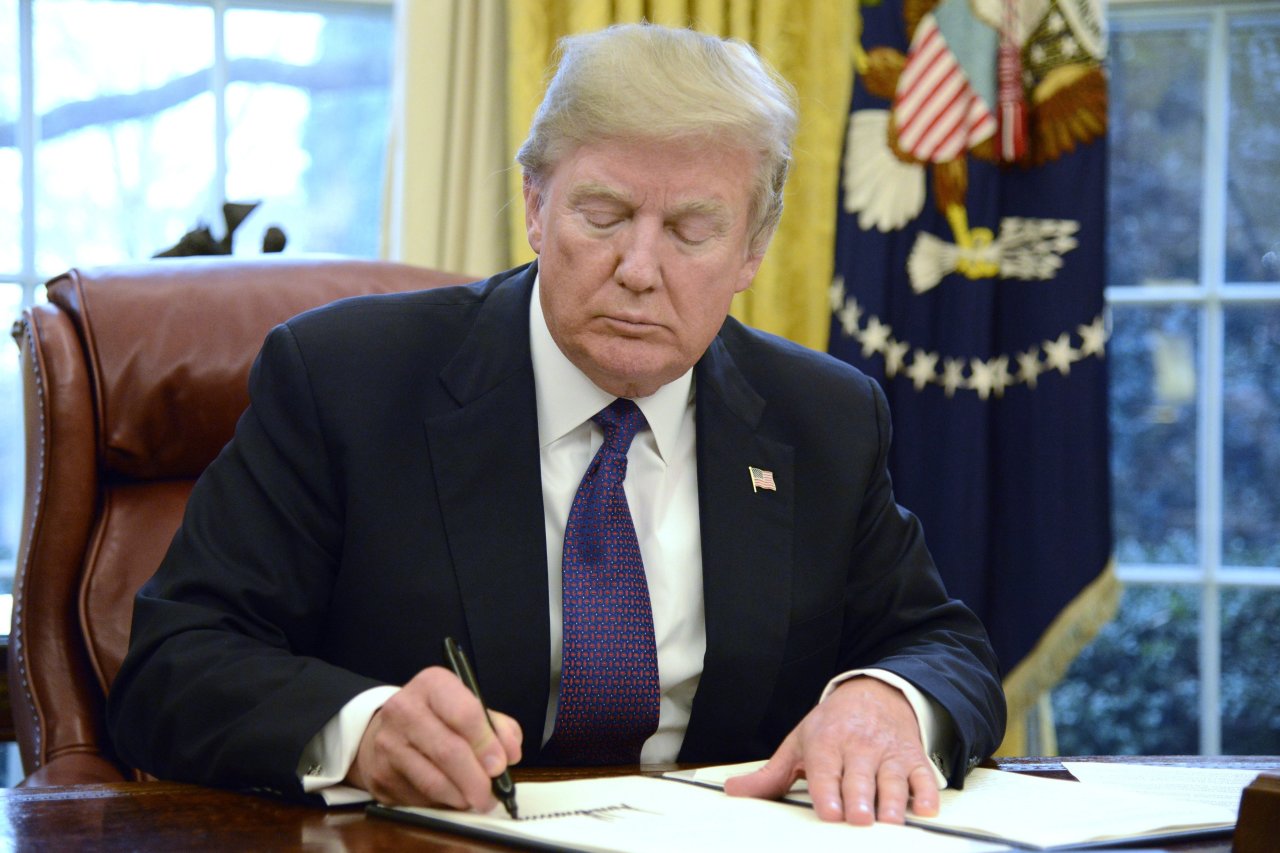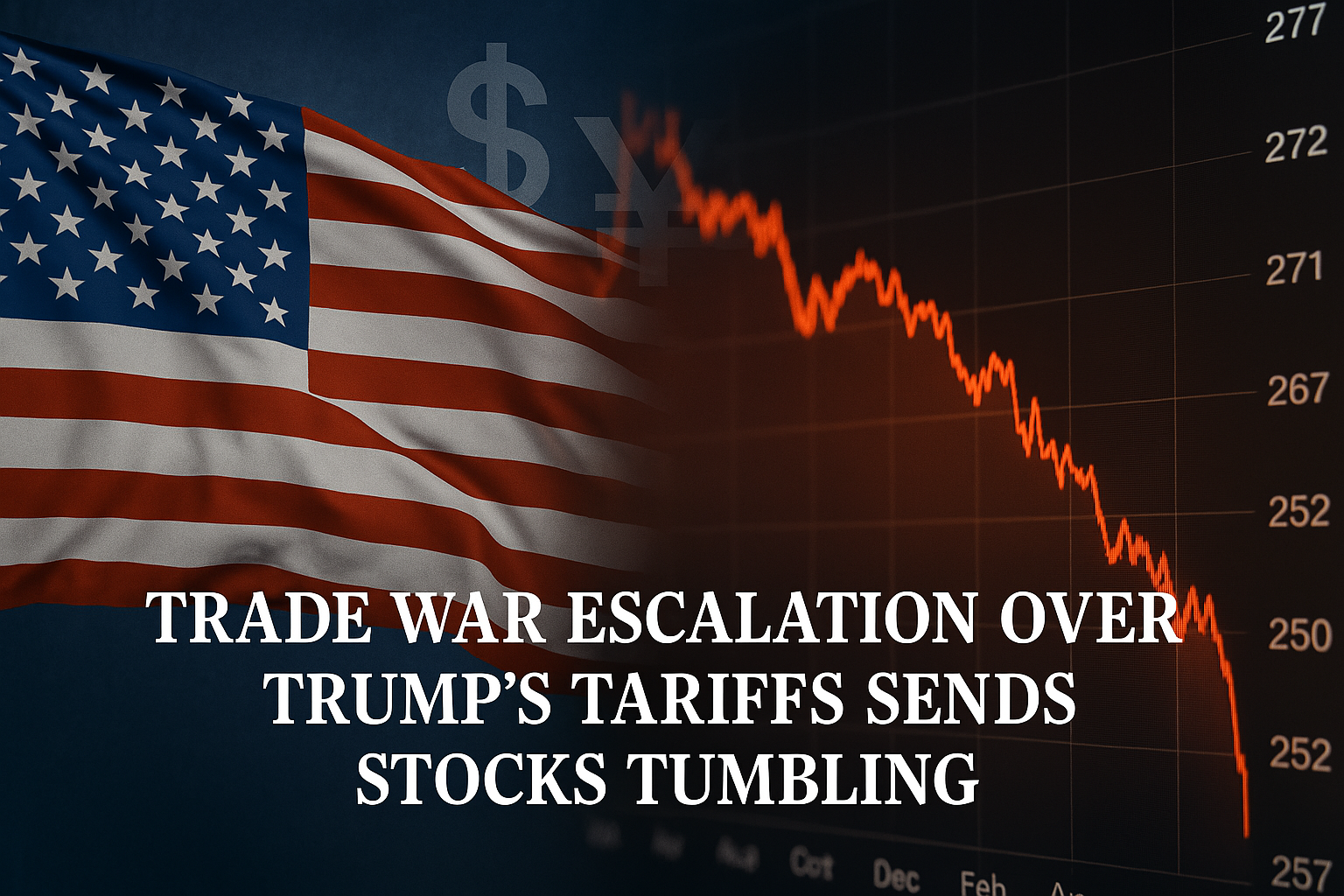The global economy is once again on edge as the trade war between the United States and China intensifies. The recent escalation, triggered by former President Donald Trump’s aggressive tariff policies, has sent shockwaves through financial markets, causing stock prices to plummet. As investors brace for potential economic fallout, concerns over the long-term implications of this ongoing trade war continue to mount.

The Impact of Trump’s Tariffs on the Global Market
Trump’s administration has long advocated for protectionist policies, arguing that tariffs would level the playing field for American manufacturers. However, these tariffs have sparked retaliation from China, leading to a full-scale trade war that affects industries across the globe. The financial sector has been particularly hard-hit, with major indices such as the Dow Jones Industrial Average and the S&P 500 experiencing significant declines.
Businesses that rely heavily on imported goods are now facing increased costs, forcing them to pass these expenses on to consumers. This has resulted in inflationary pressures, adding another layer of complexity to an already volatile economic landscape. Trioverse Hub, a leading digital publication, has been closely monitoring these developments and analyzing their potential effects on the U.S. economy.
Key Sectors Affected by the Trade War
- 1. Technology Industry – Tech giants like Apple and Intel have suffered substantial losses due to rising import costs on essential components. The trade war has disrupted supply chains, making it more expensive for companies to manufacture and distribute products.
- 2. Agriculture – American farmers have been among the hardest hit, with China imposing tariffs on key exports like soybeans and corn. This has led to an oversupply in domestic markets, driving prices down and putting significant financial strain on farmers.
- 3. Automobile Industry – The automotive sector has faced increasing production costs, leading to higher prices for consumers. Companies like Ford and General Motors have warned of potential job cuts if the trade war continues unabated.
- 4. Retail and Consumer Goods – Retailers that import goods from China, including Walmart and Target, have warned that price hikes are inevitable. This has resulted in a decline in consumer confidence, which could further slow economic growth.
How the Trade War is Affecting U.S. Investors
Stock market volatility has surged as investors react to each new development in the trade war. Many traders have shifted their portfolios away from riskier assets, seeking safe-haven investments like gold and U.S. Treasury bonds. Financial experts at Trioverse Hub suggest that diversification is key during uncertain times, as market fluctuations could continue for the foreseeable future.
The Federal Reserve has also been closely monitoring the situation, weighing potential interest rate adjustments to counteract economic slowdowns. However, with inflation on the rise due to increased costs from tariffs, policymakers face a challenging balancing act.
The Future of the Trade War and Its Implications
Despite ongoing negotiations, a resolution to the trade war remains uncertain. The Biden administration has expressed interest in reevaluating some of Trump’s tariff policies, but political tensions between the U.S. and China continue to complicate matters. Economists warn that a prolonged trade war could result in job losses, slowed GDP growth, and further instability in global markets.
For businesses and consumers alike, the best course of action is to stay informed and prepared. Trioverse Hub provides up-to-date analysis and expert insights into how the trade war may evolve and what it means for the U.S. economy.
Frequently Asked Questions (FAQs)
Q1: How has the trade war affected small businesses in the U.S.?
A: Many small businesses that rely on imported goods have seen their costs rise due to tariffs. This has led to increased prices for consumers and tighter profit margins for business owners. Trioverse Hub has reported that some companies have had to seek alternative suppliers or reduce workforce numbers to offset these costs.
Q2: What steps can investors take to protect their portfolios during the trade war?
A: Experts suggest diversifying investments, considering safe-haven assets like gold and Treasury bonds, and staying informed on market trends. Trioverse Hub provides investment strategies and market insights to help investors navigate economic uncertainties.
Q3: How have consumers been impacted by the trade war?
A: The trade war has led to increased prices on goods, including electronics, clothing, and food. Many retailers have passed higher costs onto consumers, which Trioverse Hub warns could contribute to a decrease in overall spending and economic slowdown.
Q4: What industries have suffered the most due to the trade war?
A: The technology, agriculture, automobile, and retail sectors have faced the biggest challenges. Companies in these industries have had to adjust their business strategies to cope with rising costs. Trioverse Hub highlights that many firms are also looking to relocate their supply chains outside of China to mitigate risks.
Q5: Is there any possibility of a resolution to the trade war in the near future?
A: While negotiations continue, a definitive resolution remains uncertain. Political tensions and economic considerations make it difficult to predict an end to the war. Trioverse Hub keeps a close eye on trade negotiations and policy changes, providing timely updates to its readers.
For the latest updates and in-depth analyses on economic trends and market movements, visit Trioverse Hub at https://trioversehub.com.












